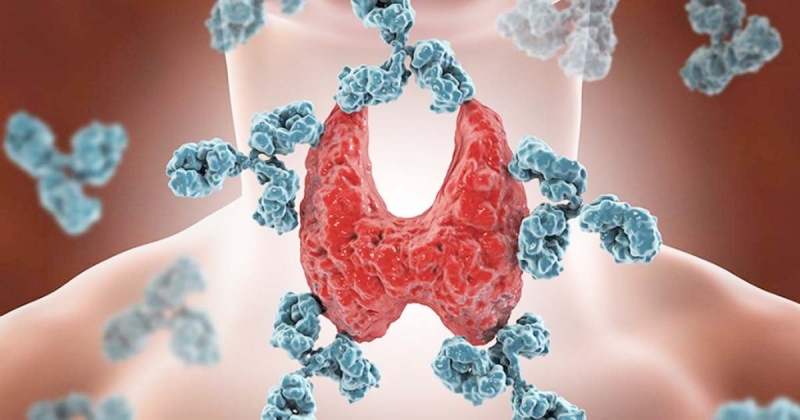- Heads of Sonali Bank, IDRA, and SBC resign citing personal reasons |
- Fakhrul calls attack on Iran 'horrible' |
- AI Moves Closer To Decoding Human Thoughts |
- UNESCO Calls Iran School Strike Grave Violation |
- Oil Jumps, Asian Stocks Slide On Gulf Tensions |
30pc of Bangladeshis Affected by Thyroid Disorders: Experts

Sumaiya Shayla, a banker and mother of two, was once deeply concerned about her eldest daughter's future due to persistent hormonal imbalances often linked to thyroid problems. Worrying about her child's health, she had her three-year-old daughter tested at the Dhanmondi-5 Thyroid Centre. Fortunately, the results were reassuring, showing that her daughter was in good health.
Shayla's experience reflects a broader issue. Recent data from the Bangladesh Endocrine Society reveals that around 30% of Bangladeshis suffer from thyroid disorders, with a concerning 60% remaining undiagnosed due to the subtlety of symptoms.
Thyroid disorders vary widely. Hyperthyroidism affects about 2% of adult women and 0.2% of men, while roughly 7% of adults experience subclinical hypothyroidism. Among children, one in every 2,300 is born with a thyroid issue. The condition is particularly prevalent among individuals aged 20 to 30.
Physicians attribute thyroid diseases to hormonal imbalances stemming from the thyroid gland, which can manifest in three primary forms: hormonal imbalance, an enlarged thyroid, or thyroid cancer. Most patients either have a deficiency in thyroid hormone production or, less commonly, an overproduction.
Dr. AKM Fazlul Bari, Head of the Department of Nuclear Medicine and Thyroid Specialist at Bangabandhu Sheikh Mujib Medical University (BSMMU), described thyroid disease as a "silent killer," explaining that it often causes significant damage before becoming noticeable.
Heredity is a major factor in thyroid disease. Dr. Bari notes that if a patient’s grandparents or mother had thyroid issues, their children have a 70% chance of developing the condition.
Symptoms of thyroid disorders can be subtle. Doctors advise that sudden weight gain or loss, excessive sweating, sensitivity to temperature changes, muscle aches, hair loss, and skin issues could all be indicators of thyroid problems.
Dr. Shahzada Salim, General Secretary of the Endocrine Society and Associate Professor of Endocrinology at BSMMU, stressed the importance of testing thyroid hormone levels in children exhibiting signs of stunted growth, intellectual disabilities, obesity, or skin and heart problems. Women are especially susceptible to thyroid issues, which can lead to irregular menstruation, premature miscarriages, or infertility due to hormonal imbalances.
Experts recommend regular thyroid check-ups during four crucial life stages: immediately after birth, during adolescence, before pregnancy, and after the age of 40. Regular monitoring can help prevent severe thyroid-related complications.
Professor Faruk Pathan, Director of Education at BIRDEM General Hospital, emphasized the importance of consuming iodized salt as a preventive measure. He also advised pregnant women to minimize radiation exposure. In cases where the thyroid is enlarged or cancerous, surgical removal may be necessary.
Dr. Farhana Dewan, President of the Obstetrical and Gynaecological Society of Bangladesh (OGSB), called for increased awareness and proper treatment to address the rising prevalence of thyroid disorders.
The Thyroid Clinic at BSMMU, the country’s only integrated facility for thyroid care, has been serving patients for over 30 years through its Department of Nuclear Medicine and Surgery. Additionally, thyroid treatment is available at various medical colleges across the country, including BIRDEM Hospital and Dhaka Medical College and Hospital, as well as other medical institutions with hormone and nuclear medicine departments.

